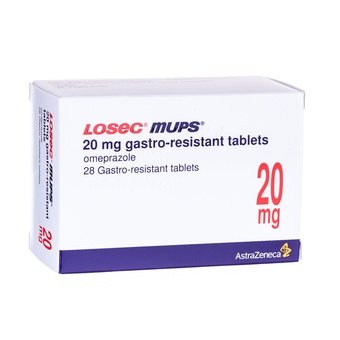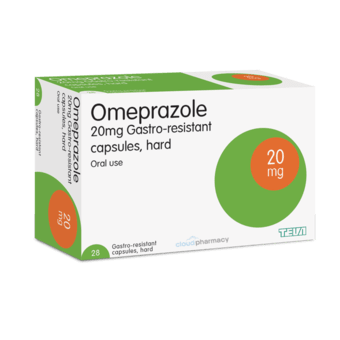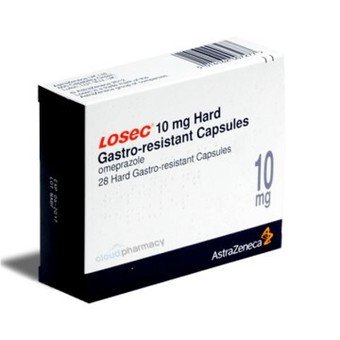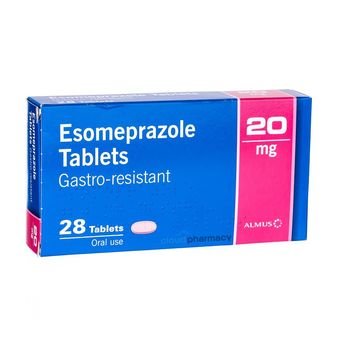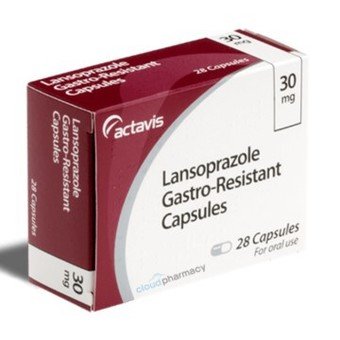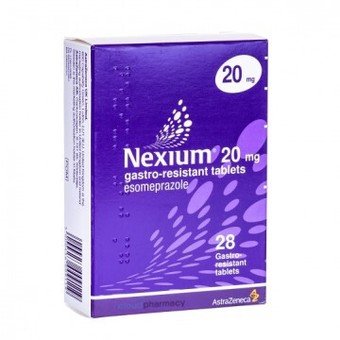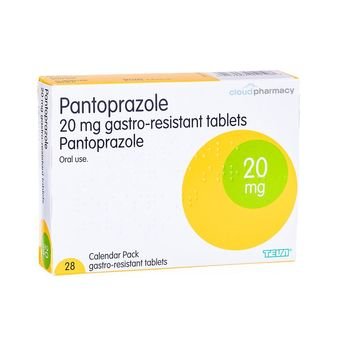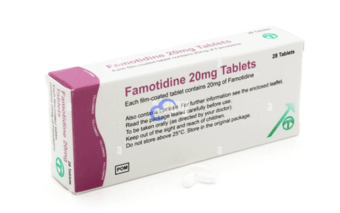Acid Reflux

More information
Introduction
Acid Reflux Treatments Online
Acid reflux, also known as heartburn, is a common condition that involves the movement of stomach acid up into the chest, which causes an unpleasant and uncomfortable burning in the chest.
You can treat acid reflux online from our UK registered prescribing service.
For more information on Acid Reflux please visit the NHS guide here.
Treatments
More information
Once an online consultation has been been approved by our medical team, our pharmacy will safely prepare and ship your treatment to you in discreet packaging using Royal Mail or DPD.
What is Acid Reflux?
Also known as gastroesophageal reflux disease (GERD) or heartburn, acid reflux is the occurrence of frequent flowing of stomach acid back into the tube connecting your mouth and stomach.
The entrance of your stomach has a ‘valve’; this ‘valve’ is a ring of muscle called the lower esophageal sphincter (LES). Under normal conditions, the LES will close as soon as the food passes through it. If the LES does not close all the way, or if the frequency at which it opens is high then the acid that is produced and secreted into the stomach can make its way up to your oesophagus. This will lead to symptoms such as a burning sensation in the chest and discomfort, this is what is commonly referred to as heartburn.
If the acid reflux symptoms occur more than two times a week, you are likely to have acid reflux disease.
Acid reflux is a common condition that can affect people throughout their life. GERD is a mild version of acid reflux that can occur at least twice a week, with both moderate to severe symptoms.
The discomfort of GERD can be managed through simple lifestyle changes and over-the-counter medication. However, some people who suffer from symptoms may require surgery to ease them.
Acid Reflux Symptoms
The primary symptoms of acid reflux include:
- Heartburn: a burning pain or major discomfort that moves from the stomach to the abdomen or chest, sometimes even up to a person’s throat
- Regurgitation: the backing up of a sour or bitter-tasting acid in the throat and mouth
Other lesser symptoms that can still cause discomfort and other conditions include:
- Bloating
- Burping
- Fluctuation
- Nausea
- Consistent hiccups
- Weight loss
- Wheezing, dry cough, chronic sore throat
- Dysphagia — the sensation of food being stuck in your throat and struggling to swallow
These symptoms can vary from person to person. Acid reflux symptoms tend to be worse after eating, or when lying down or bending over.
If you are struggling with acid reflux symptoms, speak to your GP or pharmacist.
What causes Acid Reflux?
Many people suffer from acid reflux and associated conditions such as heartburn every day. There is often no recognisable reason why.
Some of the most common causes of acid reflux include:
- Being overweight
- Smoking
- Drinking alcohol and caffeine products
- Certain foods
- Pregnancy
- Stress and anxiety
- Some medicines, such as anti-inflammatory painkillers (including ibuprofen)
- A hiatus hernia (this occurs when part of your stomach moves up into your chest)
Hiatus hernia happens when the upper part of the stomach and LES move above the diaphragm. The diaphragm is a large muscle that separates your stomach from the thoracic cavity, which contains the lungs, heart, oesophagus and trachea.
The diaphragm helps to keep the acid in your stomach because it contains muscles that stop the food/acid from coming up your oesophagus. If you have a hiatal hernia, acid can move freely up into your oesophagus and cause symptoms associated with acid reflux.
Foods that Cause Acid Reflux
Food is one of the most common causes of acid reflux and heartburn, triggering the oesophagal sphincter to relax and delay the digestive process, which causes food to sit in the stomach for longer.
Large and heavy meals are obviously implicated in causing acid reflux as well as eating 3-4 hours before you go to bed, this is because this food does not have enough time to be processed in the stomach and therefore when you lie down, you are likely to begin to feel the burning sensation in the chest.
Foods that are known to cause acid reflux include:
- Foods with high fat, salt and spice quantities
- Fried food
- Fast food
- Processed snacks
- Chilli powder and peppers
- Matty meats
- Daisy products
- Tomatoes and tomato-based sauces
- Citrus fruits
- Chocolate
- Peppermint
- Carbonated beverages
A diet that reduces or moderates the intake of these foods can help to reduce the impact and prevalence of acid reflux. Avoiding eating these foods before bedtime so they’re not sitting in your stomach and rising through your oesophagus while you lay down can help limit the impact.
Foods that can help reduce or avoid the onset of acid reflux include:
- Baked, broiled or grilled chicken breast (with the fatty skin removed)
- Lettuce, celery and sweet peppers
- Brown rice (boiled, not fried)
- Melons (including watermelon, cantaloupe and honeydew)
- Oatmeal
- Fennel
- Ginger (including ginger tea)
Eating smaller, more frequent meals rather than heavier meals and bedtime snacks can also help.
Is Acid Reflux Dangerous?
Although acid reflux itself isn’t a life-threatening condition, it can lead to more serious health issues and complications if left untreated.
Common complications that can arise from continued GERD/acid reflux include:
- Esophagitis
- Oesophageal ulcers
- Oesophagal stricture
- Aspiration pneumonia
- Barrett’s oesophagus
- Oesophagal cancer
Over time, chronic inflammation in your oesophagus can also lead to:
- The narrowing of the oesophagus: damage to the lower oesophagus from stomach acid can cause scar tissue to develop, narrowing the food pathway and causing swallowing problems
- Precancerous changes to the oesophagus (Barrett's oesophagus): the tissue lining of the lower oesophagus can be damaged by stomach acid
How Long Does Acid Reflux Last?
Acid reflux can cause discomfort and other symptoms for two hours or longer, depending on the cause.
Mild heartburn may occur immediately after consuming particular food or drink, such as a spicy or acidic meal until it has been digested.
Heartburn symptoms may also return several hours later if you have been bending over or lying down.
How to Get Rid of Acid Reflux
Acid reflux is most commonly treated with long-term lifestyle and diet changes.
Some of the things you can to do get rid of acid reflux or reduce symptoms include:
- Avoiding food and beverages that trigger acid reflux symptoms and heartburn
- Eating smaller meals throughout the day and modifying the types of foods intaken
- Quitting or reducing smoking
- Raising your head while you sleep to between 4 and 6 inches
- Eating no later than 2 to 3 hours before bed
- Sleeping upright during daytime naps
- Wearing lighter clothes
- Taking steps to lose weight through exercise or diet changes
- Consulting your doctor about medication that may be triggering symptoms
If you find that you keep getting heartburn, speak to a pharmacist for advice — they can recommend medicines that can ease symptoms.
Acid Reflux Treatment Options
Most of the time, acid reflux can be treated by adopting positive lifestyle changes such as eating light meals at appropriate times, losing weight, not smoking and avoiding sugary carbonated drinks as well as other triggers that you may have experienced in the past that caused you to experience acid reflux.
If the lifestyle changes have not had any positive impact then there are some over the counter preparations available, such as antacids like Rennie or preparations that act as rafting agents by coating aggravated tissues in the stomach and oesophagus to help protect them from the stomach acid.
There are a number of acid reflux treatment options available. In many cases, over-the-counter medications can help to control the symptoms and effects of acid reflux.
These include:
- Omeprazole and Lansoprazole: these work by decreasing the amount of acid your stomach produces. It does this by blocking a system in the cells of your stomach called the proton pump
- Antacids: these can neutralise the acid from your stomach. However, they may cause diarrhoea or constipation, especially in overuse. For best results, ensure you’re using antacids that contain both magnesium hydroxide and aluminium hydroxide. When combined, these can help to counteract common gastrointestinal side effects
In the event these don’t work, your doctor may prescribe the following:
- Foaming agents: Coat your stomach to prevent reflux
- H2 blockers: Decrease acid production in your stomach
- Proton pump inhibitors: Reduce the volume of acid your stomach makes
- Prokinetics: These can help empty your stomach faster and reduce acid reflux
Ensure you aren’t combining more than one type of antacid medication with another form of prescription medication without your doctor’s guidance.
In most cases, a combination of lifestyle changes and these medications is all an individual needs to control and reduce the impact of acid reflux symptoms.
Is Acid Reflux Ever Treated With Surgery?
In the event medication and dietary changes don’t resolve your acid reflux symptoms and they continue to adversely affect your life, your doctor may recommend surgical solutions.
There are two types of surgery used to relieve the symptoms of acid reflux/GERD if you aren’t seeing solutions through the daily use of medication.
One procedure involves the surgical placing of a ring (known as a LINX device) around the outside of the lower end of a person’s oesophagus.
The ring consists of magnetic titanium beads held together by titanium wires that wrap around the tube connecting the mouth to the stomach. This device prevents stomach contents from backing up into the oesophagus, limiting the impact of acid reflux. This procedure should be avoided by anyone allergic to certain metals and patients should not take any type of MRI test afterwards.
Another surgical procedure called fundoplication can help prevent further acid reflux.
The process creates an artificial valve using the top of the patient’s stomach. The procedure involves wrapping the upper part of the stomach around the LES to strengthen it, prevent acid reflux, and repair a hiatal hernia. The procedure is performed through one of two options, either an open incision in the abdomen or chest or with a lighted tube inserted through a tiny incision in the abdomen.
Typically, these procedures are an absolute last resort for treating acid reflux. Dietary, lifestyle and medical solutions should be followed first.
FAQ
What is Acid Reflux?
It is the movement of the stomach contents up the oesophagus or gullet. Often causing an uncomfortable or burning sensation behind the breastbone.
In more serious or left untreated, Stomach contents can be regurgitated into the mouth affecting the teeth, gums and causing bad breath.
Sometimes the regurgitated fluid can enter the airways and exacerbate or make asthma worse.
What causes Acid Reflux?
The stomach has a small circular piece of muscle at the top, called the cardiac or lower oesophageal sphincter.
This stops the stomach contents from travelling back up the oesophagus or gullet.
When this muscle becomes weakened, the stomach contents can travel up and cause symptoms like heartburn, bad breath and the feeling of being sick.
Is Acid Reflux common?
It is very common and 60% of people will have reflux or similar symptoms in a 12-month period.
In the same period, 20-30% of people will have symptoms on a weekly basis.
What are the symptoms of Acid Reflux?
The movement of acid can give the following symptoms
- Burning feeling behind the breastbone
- Feeling sick
- Being sick
- Bad breath
- Tooth and gum problems
- Worsening of asthma
What can make Acid Reflux worse?
The following can make acid reflux worse.
- Being overweight or obese
- Smoking
- Eating spicy food,
- Large meal sizes
- Late night Eating, within 2 hours of going to sleep
- Alcohol
- Coffee
- Chocolate
- Pregnancy
- Tight Clothing
- Certain medicines for blood pressure like Calcium channel blockers, medicines for angina like glyceryl trinitrate and painkillers like ibuprofen, diclofenac and other anti-inflammatory drugs.
- Stress
- Genetics
How do I choose the correct treatment for Acid Reflux?
There are different categories of treatment and their uses and explanations are listed below.
Generally, patients should start with antacids and then make their way down the list if treatment does not control their symptoms.
1. Antacids – the first line treatment. These help neutralise stomach acid to relieve symptoms. The effects usually last for 2-3 hours. Examples of antacids include Rennie, Enos, Andrews Salts, and Tums. They contain ingredients like calcium carbonate, which neutralizes stomach acid, but too much calcium taken regularly can make acid reflux worse. Only be for occasional or infrequent use.
2. Alginates – neutralize and form a layer on the top of stomach acid, which prevents upward movement. Are available in tablet and liquid forms. Liquids act quicker but are more inconvenient to carry around. Usually, these last no more than 3-4 hours.
Alginates are made up of calcium carbonate, magnesium carbonate or aluminum salts. Too much calcium taken frequently can cause stomach acid to worsen, so should only be used infrequently. Excessive magnesium salts can cause diarrhoea and too much aluminum salts can cause constipation.
Always check with pharmacist, as alginates can interact with other medication. Examples include Gaviscon, Gaviscon Advance, and Peptac.3. H2 Receptor Antagonists – available as tablets. They reduce the production of stomach acid and were initially introduced on prescription, before being available to buy from pharmacies. They start to work in as little as 30 minutes and their effects can last for up to 12 hours. They are well tolerated and side effects are rare. They can include diarrhoea, tiredness, rashes, and constipation. Examples include Ranitidine, Zantac, Gavilast, Cimetidine, and Pepcid AC.
4. Proton Pump Inhibitors – or PPIs for short, are the latest medicine for controlling acid reflux and other stomach symptoms. They work by reducing the stomach acid, but are more effective and last longer. Effects can be seen up to 17 hours after the dose is taken. They come in tablet or capsule forms, be should be swallowed whole (Losec Tablets can be crushed if needed). PPIs are very well tolerated, with low incidence of side effects. Usually, unwanted effects include diarrhoea, constipation, drowsiness. Examples include Omeprazole, Lansoprazole, Losec and Esomeprazole.
Guides
How it works

First...
Complete a quick eligibility check

Then...
Order your treatment

Finally.
Fast, confidential delivery to your door
